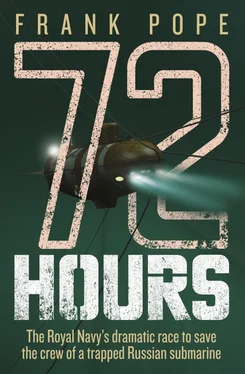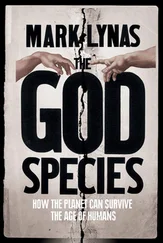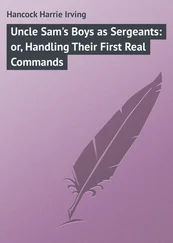The opaque grey of cloud filled the cockpit glass. Instrument-only conditions are famously deceptive and disorienting, convincing unwary pilots to believe their plane is rolling upside down when it is in fact flying straight and level. Flying by instinct becomes a lethal urge. The pilots of the C17 were blind to the outside world, reliant on instruments calibrated to a different scale from the one the voice guiding them through the cloud was using. The presence of steep granite mountainsides lurking in that same cloud did not make it any more comforting.
Everyone in the cockpit felt the same ratcheting up of the pressure, and all four of them began giggling. While Hewitt and the lead pilot from the second team concentrated on flying the C17 on the path they’d plotted on their atlas, the two co-pilots worked on translating the altitude instructions from Elizovo’s Air Traffic Control. A mistake here would be fatal. One pilot was taking the readings from a conversion table himself before the other cross-checked the figure and double-checked on their topological chart to make sure that they weren’t being directed into a volcanic crater.
In 99 Squadron they’d become accustomed to evaluating reports from ground-based commanders before landing in Baghdad or Kabul, weighing up threats from machine gun fire and rocket-propelled grenades. Now they were having to weigh up an altogether different risk, and it felt good. They were pilots, after all. This is what they lived for.
‘Nine hundred feet,’ one called out against the murmur of cockpit activity.
‘Eight hundred.’
The blank greyness that filled the windshield flickered briefly, then returned. Ten seconds later it flickered again then disappeared, revealing dark fields and brooding mountainsides. All four pilots began urgently searching through the gloom. The C17’s head-up display projected essential flight data such as airspeed, attitude and heading on to the windshield and so their attention was not focused simply on the cockpit immediately around them, but flying on instruments and flying by looking out at the real world still used different mindsets, and it took them a second or two to adjust. Squinting through the exploding raindrops and the sweep of the windscreen wipers, all at once they saw the tiny lights ahead.
‘Elizovo ATC, Ascot 6564 has runway in sight,’ Hewitt said into his mike.
Hewitt nudged the huge aircraft’s rudders, making final adjustments to the drift to take account of the wind, and 15 seconds later they were over the threshold, RAF rubber bouncing on Russian concrete. The time was 0521 Zulu, or twenty one minutes past six in the evening local time. The Americans – having started over a thousand kilometres closer – were an hour and a half behind.
Saturday, 6 August
SS + 50 h
06.30 UK – 09.30 Moscow – 18.30 Kamchatka
Petropavlosk
‘The British rescuers have landed.’ The words floated through the fog of Yelena Milachevskaya’s tranquillised mind. She’d been drifting without hope, but the news suddenly anchored her. She felt that at last she had been given something solid to hold on to.
All of her worst fears about the Russian Navy were coming true. Admiral Fyodorov had just been on the television saying it had decided to use explosives to free the craft. The obstructions trapping the submersible would be targeted, he said, blowing the link to the two 60-tonne anchors that held the array in place, in the hope that the entire array would float to the surface together with AS-28 .
But now the Western rescuers had come. No matter that Slava despised foreigners. They would rescue him and bring him back to her.
Saturday, 6 August
SS + 50 h 05 mins
06.35 UK – 09.35 Moscow – 18.35 Kamchatka
Elizovo International Airport and Military Airbase, Petropavlosk-Kamchatsky
Once the aircraft finished a long, slow taxi and at last rolled to a final stop, Commander Riches made his way forward to take a look. From the cockpit windows, he had his first glimpse of Russia. Beyond the taxiway were trees and, through the drizzling rain, the vague shapes of distant mountains. He couldn’t see any terminal buildings – not even a hangar. Hewitt explained that the control tower had directed them to park here in a distant corner of the airfield. It was a bleak scene. Puddles of water stood on the cracked slabs of concrete that made up the runway apron, and tufts of grass were growing up between the grey reflections of low hanging cloud.
Sixteen degrees and raining in Kamchatka, the team had told him back in Abbey Wood. Just like Scotland, they’d said. You’ll feel right at home .
Then the loadmaster opened the aircraft’s passenger door on the port side, and revealed just how far from home they were. A reception party had gathered beside the aircraft to meet them, a mix of soldiers wearing huge, fur hats and Air Force officers with the high-fronted, small-peaked military hats that added almost a foot to their height. Clustered behind them was a group of civilians wearing bright waterproofs. After some orders were barked out by an officer, one of the civilians explained in halting English that they were not to come down from the aircraft, but instead to hand over their passports while their situation was assessed. An officer climbed the ladder and took the documents. This wasn’t the kind of welcome they were expecting.
Riches asked the interpreter – who turned out to have been a student of English recruited from the local university – to explain that they were there to save Russians, military men like them. The translated version of his words seemed hardly to register. The British team were soon back inside the aircraft, the minutes ticking by as the Russian officers leafed through their passports and had long conversations over a handheld radio. Riches could feel his blood rising. There was still so much to do, and every minute mattered. The sailors had already been in their freezing coffin for 60 hours, and his team still had to offload the aircraft, get to the port, set themselves up on the ship and steam out to the site before they even started the business of trying to cut the submersible free.
A quarter of an hour later he was about to escalate the situation and demand to see a senior officer when he caught a glimpse of something familiar outside the aircraft. He turned to see a Royal Naval uniform coming up the ladder. When he looked up he immediately recognised Captain Holloway, Naval Attaché to Moscow.
‘Hello, Ian, fancy meeting you here,’ he said. ‘What seems to be the problem?’
Riches’ scowl eased as Holloway explained the hold-ups. ‘We’ll get this cleared up, we’ve just got to play the game a little,’ said Holloway before turning to his companion, a Liaison Officer from the Pacific fleet.
The customs and immigration staff had their own procedures to follow, and didn’t feel the same sense of urgency. When Holloway had arrived an hour and a half ago he’d been told he would be taken back to his hotel to rest after the flight. He’d refused and insisted on being taken directly to the military side of the airfield to meet the C17 on landing – a process that had taken him the entire time.
After several minutes of discussion, Holloway told Riches that nothing could be done until customs had been cleared. His eyes warned Riches to be patient. Later he recounted the bureaucratic nightmare he’d been through when trying to clear musical instruments for a Royal Marine band into Moscow for a performance. Many tonnes of military grade submersible hardware was a different league entirely.
Eventually the customs officer stepped on board, his face a caricature of an officious, poisonous character. He stepped around the inside of the aircraft, prodding and poking Scorpio and her supporting equipment, before demanding a manifest that listed the value of each item. Although equipment lists existed, they weren’t in one document, and certainly not with a value assigned. Seething, Riches scrawled a list out by hand on a scrap of paper, conferring with Gold to help make estimates of value.
Читать дальше












